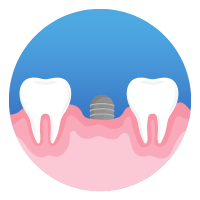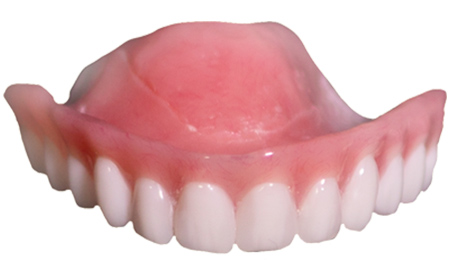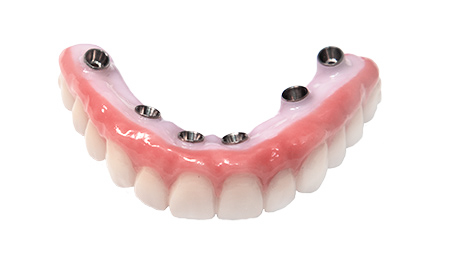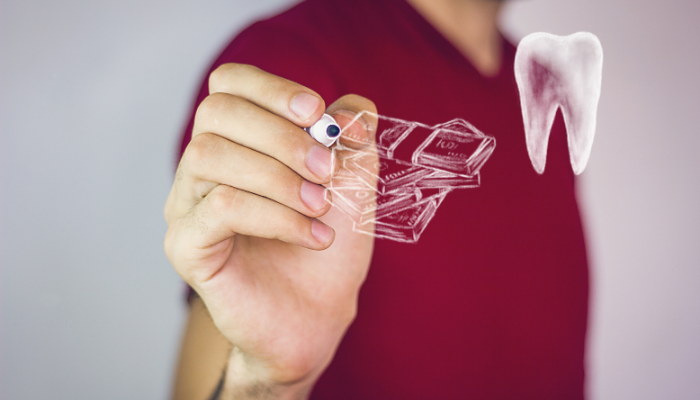Dental implants are a significant investment — so what makes them costly? And what makes the fees of one provider higher than another? Let’s look at nine factors that influence the cost of dental implants and help determine which provider is right for you.
1. Big City vs. Smaller Town
Is the dental implant center located in a larger, metropolitan area, or a smaller town?
“It’s not unusual to see a person from the metropolitan Orlando area who has been quoted a fee that is twenty thousand more than what our fee is in the Lakeland area.” – Harley Richards, DDS
It’s common for dental implant centers to charge vastly different fees, even in neighboring cities like Orlando and Lakeland in Florida. In larger cities like Orlando, patients are often quoted a price twenty thousand dollars higher than in a smaller town like Lakeland for the same procedure.
Larger cities like Tampa, Orlando, Miami, Atlanta, San Francisco, and NYC have higher costs of land/rent as well as higher median income. This leads to dental implant centers incurring greater expenses in running their practice in these areas, which ultimately gets passed onto patients in their fees.
Traveling to a smaller town to have the procedure done can save you a lot of money, even after travel costs.
However, some patients take this a step further: “I’ll go out of the country, where the procedures are really cheap!”
Those considering traveling out of the country to have an implant procedure done (dental tourism) should be cautioned; The procedure and materials used in other countries may not be the of same quality as those in the US. It’s not uncommon for patients who have had procedures done abroad to experience implant failure or need work to be fixed or redone. In these cases, an initially cheaper procedure ends up costing the patient much more than just having it done in the US in the first place.
2. Doctor Experience / Certification
Is the doctor a board-certified oral surgeon or a general dentist?
“You need to do the research on the healthcare provider … if you don’t, you could find yourself in a situation where you have work that needs to be repeated later by a more experienced surgeon.” – Harley Richards, DDS
Not all oral surgeons have equal levels of certification and experience. Some less-qualified doctors may resort to lowering their prices in order to attract new clients.
An experienced surgeon can be the difference between implants that can last a lifetime and implants that end up failing. If the procedure must be redone, this will drive up your overall dental implant cost dramatically.
If a specialized surgical technique is required for your situation, is the surgeon you’re considering experienced in that technique? For example, you may have bone loss in your upper jaw that prevents traditional implants from being placed. A surgeon trained in zygomatic implant placement could still place these implants in one day by embedding them into your cheekbones, or zygoma. However, many surgeons who have not been trained to place zygomatic implants will default to treating you using bone grafting, which adds months or years to your treatment and may be more apt to fail. Comparatively, zygomatic implants have a very high success rate and can be placed in one day.
Do your research:
- Is this surgeon board certified or board eligible with the American Board of Oral and Maxillofacial Surgeons?
- How many implants has this surgeon placed? Do they place them on a regular basis?
- For patients with bone loss, is this surgeon trained in the placement of zygomatic implants?
3. Single Tooth vs. Full Arch

What work do you need done?
Do you need single tooth implants? If so, how many?
Do you need a full set of crowns for the upper jaw, lower jaw, or whole mouth?
There are many different types of dental implant systems, and whether you need one implant or a full mouth restoration will determine your base cost.
For full mouth restoration, some practices charge a fee for each required implant and abutment placed, while others charge a fixed price, no matter how many implants are used. In the case of zygomatic implants, there may be an up-charge. Your provider should discuss these details with you in your initial consultation. Learn more about the cost of zygomatic dental implants.
You should also be cautious of offices that provide quotes for the price of the implants and later notify you of the price of the abutments and crowns. Make sure to get everything in writing upfront.
“Some doctors, when doing full mouth therapy charge by the implant… And other offices, like ours, charge by the jaw.” – Harley Richards, DDS
4. In-house Lab vs. Outside Labs
Does your dental clinic have an in-house dental lab or use an off-site, commercial lab?
Prosthetic teeth are custom-made by specialists in a lab. A dental implant surgical center with an in-house lab can control the cost of teeth production and offer them to patients at a more affordable rate. An outside commercial lab, however, will have its own profit margin that brings up the cost for the provider and is ultimately passed onto the patient’s fees.
“There’s no question… the in-house lab is by far the better arrangement, not only from a fee standpoint but also from a quality control standpoint.” – Harley Richards, DDS
A dental implant surgical center would likely only build an in-house lab if they have a high volume of dental implant procedures (about 30-50 per month). Therefore, possessing an in-house lab is not only more cost-effective, but can also be telling of how much experience the practice has in placing implants.
5. Materials Used
What material do you want your prosthetic teeth to be made of?
Most implants (the fixtures surgically placed in the jaw) are made from titanium, but the prosthetic teeth may vary in material quality and cost. There is a vast variety of materials used in prosthetic teeth, but here are the most common categories:
Acrylic
Zirconia
Acrylic prosthetics are ideal for temporary fitting due to their lightweight and shock absorption but are not durable enough for long-term placement.
Zirconia prosthetics are chosen for their attractive aesthetics and superior durability, making them the ideal choice for long-term placement.
Zirconia is the highest quality material used in prosthetic teeth and is designed to last a lifetime. Zirconia teeth may have a higher initial cost but may actually be more cost-efficient in the long term because they are less likely to break or wear out. Choosing a cheaper quality material to be used as permanent teeth may require you to have them repaired or replaced later on.
“The take home message is, when you’re looking at your full arch dental implant treatment you need to be aware of the type of material used in the final restoration.” – Harley Richards, DDS
6. Level of Anesthesia
What level of anesthesia will you use?
There are generally three anesthesia options offered for dental implant placement procedures:
Local anesthesia – an injection or swab of medicine administered to numb the area being treated. This option is generally reserved for single implant procedures only.
IV Sedation – a needle is placed in a vein through which medication is administered to sedate the patient. This produces a state of numbness, rather than a state of sleep, that still allows for unpleasant tingling in the area being worked on. This option may be offered for single implant or full arch procedures. It’s important to point out that there is a chance the patient will be somewhat conscious and aware during surgery under IV sedation.
General Anesthesia – places a patient in a state of sleep in which the central nervous system is inhibited. When a patient is under general anesthesia, the surgical team can protect the patient’s airway, preventing any unwanted objects from entering the lungs. An anesthesia professional is usually required to monitor the patient and their vital signs throughout the procedure.
General anesthesia is the most time-efficient and effective option, but also may be more costly.
“We believe strongly in General Anesthesia because it makes the 2-3 hour procedure so much more comfortable for our patients.” – Harley Richards, DDS
7. Health Risks
Do you have health risks that would require advanced treatment?
“Health issues may have some impact on cost.” – Harley Richards, DDS

When 2 or 3 major health problems are present, such as heart disease or diabetes, a patient may be required to have their dental implant procedure performed in a hospital operating room.
This results in increased cost due to the hospital fees as well as the cost for a surgeon to transport their equipment.
The good news is, when hospitalization is deemed as a medical necessity, a patient’s insurance may cover the hospital costs.
8. Bone Quality
Does your jawbone quality require extra techniques?
If you have severe bone loss in your jaw, you may require special techniques to be performed prior to or during your implant placement procedure.
Sinus lift – a surgical procedure that is performed in order to increase the amount of bone in the upper jaw and may be required before getting dental implants on the upper jaw. If there is bone loss, the sinus has to be moved up in order to make space for a bone graft.
Bone grafting – a surgical procedure that utilizes materials to replace missing bone in the jaw. This is a common practice in dentistry and many dentists are trained in this procedure. However, the bone grafting process can be very lengthy, requiring three months to two years for more bone material to be added and fuse with the jaw. Bone grafting also has a statistically higher implant failure rate compared to more advanced techniques.
Zygomatic Implants – are often used when a patient’s jaw lacks enough bone to place traditional implants. Surgeons with advanced training and experience often use a technique of placing longer implants into the zygoma (cheekbone) instead of the jaw. Zygomatic implants can be placed in a single surgical procedure, making bone grafts unnecessary. This is an ideal solution for bone loss. New Teeth Now surgeons place these specialized implants on a daily basis.
These techniques will bring up the cost of dental implant therapy, as they require extra time and materials.
“At our center, when we see patients whose bone is deficient in the back and in the front, we turn to the zygomatic technique so we can treat the patient in one day with a very high success rate.” – Harley Richards, DDS
9. All Under One Roof
Is the entire dental implant process administered at a single, full-service facility?
For the convenience of their patients and the resulting lower costs, many practices doing a high volume of dental implant procedures prefer to have all CT scans, anesthesia services, operating rooms, and restorative work services provided at one central facility by their own staff. This also allows for more communication between the lab and restorative doctors, leaving less margin for error. Implant centers that operate “all under one roof” can offer significant cost savings while providing a higher level of quality control.
Higher costs are a fact of life when a clinic needs to outsource for these services. Each separate provider will bring with them their own profit margins. These costs must be covered by the practicing surgeons and will be reflected in the patient’s fees. It can also be quite inconvenient for patients who have to manage multiple appointments and travel to many different locations for care.
“If you can find a center where they’re doing 50 full arch procedures a month, then obviously that’s the place you want to be.” – Harley Richards, DDS
Dental Implants vs. Dentures
The price tag of dentures can make them a more attractive option, but careful consideration should be given as to whether they are the right solution for you. Here’s a quick comparison.


Dentures |
Dental Implants |
|---|---|
| Allow for bone loss in the jawbone | Prevent bone loss, maintaining jawbone and facial structure |
| Require frequent maintenance as the jawbone and denture wear | Designed to last a lifetime |
| Often feel unnatural | Feel and work like natural teeth |
| Can slip, causing discomfort and slurred words | Fixed to the jawbone securely |
| Chewing capacity is restricted, and requires avoiding certain foods | Can chew and bite through most foods |
| Initially cheaper, but less effective | Larger up-front cost, but more quality investment |
The Cost of Not Getting Dental Implants
When faced with the price of dental implants, one might say “Dental implants cost too much. I’ll just get by without them.” But what is the cost of not getting dental implants?
- No Smiles – Many of our patients tell us that, prior to their implants, they were in the habit of not smiling in order to hide their teeth. Psychologists agree that smiling contributes greatly to mental health. Training yourself to not smile can lead to lessened quality of life or more serious effects as time goes on.
- Teeth Maintenance – Lost, broken, and unhealthy teeth often pose problems requiring frequent trips to the dentist. Within ten years, depending on the state of one’s teeth, the cost of trips to the dentist office could surpass the cost of dental implants.
- Malnutrition – Lost teeth result in an eating disability primarily due to loss of bite strength. Studies show that dentures help restore up to 20-25% of a patient’s original bite force. Dental implant recipients, however, show 85-100% of original bite force after their healing period. Strong bite force is essential for being able to eat a variety of foods that contain necessary vitamins and nutrients. Studies have shown that denture wearers often face malnutrition due to a diet of softer foods, resulting in great risk of disease.
Dentures also cover the mouth’s palate which is responsible for taste. Many denture wearers report lower appetites because of inability to taste. This often furthers nutrition problems. These problems are so frequent among denture wearers that a 2011 study concluded “…every complete denture wearer needs to be periodically counseled by a registered dietitian and dentist for a checkup to avoid malnutrition and disease.”
Since dental implants do not cover the palate, very few dental implant patients report any dietary issues.
- Isolation – Since social activities are frequently centered around eating and talking, denture wearers tend to skip social activities, for fear of embarrassment. This fear may be due to lisps, denture slippage, inability to eat certain foods, or esthetic appearance. Because social interaction is integral to mental health, denture wearers are at greater risk to psychological problems.
- “Sunken” Facial Appearance – When teeth are removed but implants are not placed, the surrounding bone is left without support. This allows for resorption, or “bone loss.” As the jaw resorbs, it creates a “sunken” facial appearance.
Denture wearers who switch to dental implants generally report a great increase in social interaction and self-confidence.
Want a New Teeth Now estimate?
Call us at (800) 617-2176
Meet Dr. Harley Richards
Dr. Richards is the founder of New Teeth Now, a life-changing procedure that has helped thousands of patients regain their health, happiness, and confidence.









